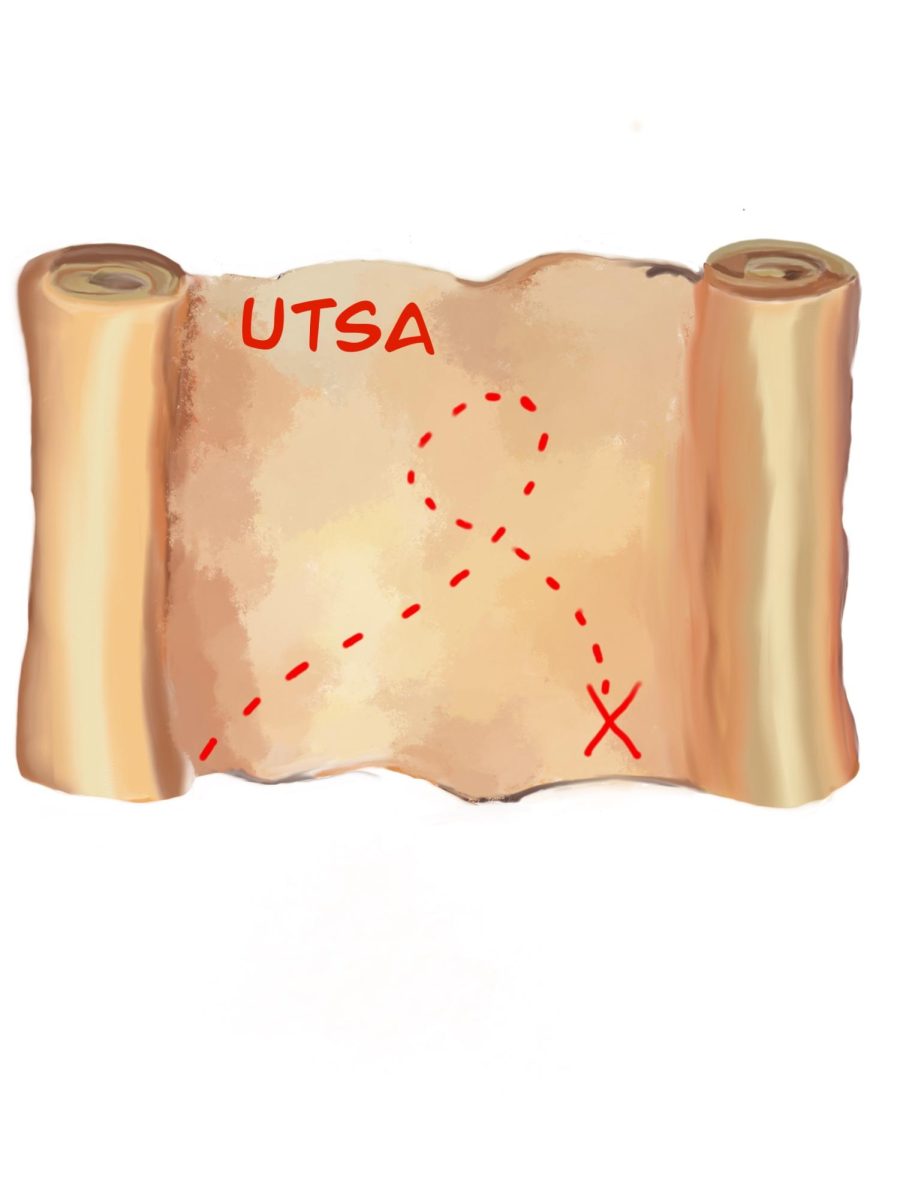On Nov. 19, students gathered in the Denman Room to view “Gasland 2,” a 2013 documentary written and directed by Josh Fox that discusses the detrimental effects of hydraulic fracturing (fracking) on the environment. The film is a follow up documentary to Josh Fox’s 2010 Oscar-nominated documentary “Gasland.” The documentary screening was hosted by the Students United for Socio Economic Justice at UTSA.
“Fracking is an important subject to learn about because it is swiftly becoming the main supply of energy for the next generations. With the quality of the environment and peoples’ lives at risk, it is crucial to educate oneself on the detrimental effects of this type of energy extraction. Sustainable energy resources are out there, they just need to be implemented,” says Tony Pedreza, a member of the SUSJ.
The screening started with a brief introduction by Rachell Tucker, a member of the SUSJ student organization. She spoke about the student organization, its actions and the reason for the showing of the film.
“Thank you so much for coming to our event. We are ‘Students United for Socio Economic Justice,’ an organization from UTSA that emerged off of the Occupy movement. We are a multi-issue organization that primarily focuses on matters pertaining to the privatization and corporatization of our university, the rising tuition costs associated with that and environmental justice issues that connects everything and affects us all. To us it is important to raise awareness of hydraulic fracking- the extracting process which uses millions of gallons of fresh water and chemicals to release natural gas and oil from shale rock,” says Tucker.
A montage of politicians praising natural gas drilling as a way of creating jobs, powering cleaner trucks and factories, lowering foreign oil imports, and ultimately making the U.S more energy independent opened the feature.
A discussion on the aftermath of the BP oil spill immediately follows the montage. This seemed like a weird beginning since the documentary is mainly about hydraulic fracturing or “fracking.” However, the segment was meant to give viewers a background on how oil and gas companies refuse to deal with the consequences of their actions appropriately. Following that, the main topic conversation of hydraulic fracturing commenced.
“Hydraulic fracturing or fracking is a method of gas extraction, drilling deep down thousands of feet to a shale formation and then forcing down the well millions of gallons of water laced with toxic metals at such intense pressures that it creates fractures in the rocks to free up the gas,” says Fox as an introduction to his argument against fracking.
In the film it is revealed that Fox became interested in advocating against hydraulic fracturing because of his personal experience with it. In 2008, he and most people living in northern Delaware, got a letter in the mail stating that their land was on top a formation called the Marcellus Shale. He was offered a deal to lease his land to the natural gas companies for a $100,000 so that they could use it for fracking.
After the introduction to fracking, he begins to show personal narratives of people living in Dimock, Pennsylvania. These people had had their water contaminated by chemicals involved in fracking.
In a “60 Minutes” interview shown in the documentary, five people from Dimock Pennsylvania were asked how many of them had lost their water supply (as a result of fracking, presumably). All hands immediately went up. Some other residents talked about their water going up in flames or exploding after being shook. In response, a Cabot oil and gas spokesman said “We don’t believe the process is contaminating groundwater. As a technology, it’s proven and safe.”
“Gasland 2” continues in this fashion: interviewing people whose water supply had been direly affected by fracking, giving out facts on fracking like it being exempt from the Safe Water Act, and showing oil and gas companies public relations persons and lobbyists denouncing the claims being made by victims and other environmental activists.
One of the residents interviewed in the documentary is Steve Lipsky. Lipsky’s story was meant to convey the message to viewers that fracking affected everyone across all classes. Lipsky owned a million dollar home with a customizable bathroom, but that did not stop his water from being contaminated by fracking. It also did not guarantee that his claims would be handled properly. After the EPA advised his family not to drink their water, they allegedly redrew their findings and kept test results away from the public.
The documentary also touches on political action against companies by families in the form of lawsuits, news interviews and directly contacting the Environmental Protection Agency (EPA). Counter actions by oil and gas corporations in the form of expanding wells within states, across states and globally; increased lobbying and “gas company propaganda” like funding science fairs and coloring books, and remaking the image of these companies to the public are also discussed.
One of the important parts of the documentary included the re-evaluation of Texas’ relationship to fracking. Fox notes that there are around 15,000 wells in Texas alone, and much of Texas’ wealth is built on the oil and gas industry so the Texas government is controlled by these companies.
“Gasland 2” concluded by showing how the cases against oil companies by families were dropped by the EPA, how the EPA covered up findings that linked fracking to water contaminations, and how the lawyers turned on the families by making them settle with the oil and gas companies and sign nondisclosure agreements or pay legal expenses.
“It is imperative that one utilizes their newly attained knowledge in effective ways. Seeing the documentary and feeling sympathy for the victims of these injustices is okay, but they don’t need anybody’s sympathy. They need people to stand up and take action against companies that are expropriating their homes and the political “representatives” that are ignoring their pleas. The best ways to be proactive on campus is by organizing and participating in an organization that is addressing these issues,” Tony Pedreza concluded after the screening.
“It cannot be emphasized enough how much your input means to the victims of these practices and the sustainability of the future everyone will be living in.”











